Endometriosis and the Menopause

Menopause is a natural progression for every woman in her later life. It happens when menstruation has not occurred for one entire year, triggered by the gradual fluctuation and fall of oestrogen and progesterone hormones, which usually happens around the age of 51.
Endometriosis is when the lining of the uterus, called the endometrium, grows outside of the uterus, and forms on the walls of the abdominal cavity and the outer surfaces of the uterus, ovaries, fallopian tubes, bowel and bladder. As a result, menstrual fluid gets trapped during a cycle, rather than exiting the vagina, which triggers pain, inflammation and scar tissue.
Are there any overlapping symptoms of the menopause and endometriosis?
The typical symptoms of endometriosis are:
- Pain during menstruation time
- Lower back pain
- Fatigue, infertility, chronic pelvic pain
- Painful bowel movements
- Constipation
- Diarrhea
- Painful urination during menstruation bleeding
- Heavy and/or irregular periods
The overall symptoms of endometriosis tends to be crippling menstrual cramps, gastrointestinal problems, and the only symptoms shared with the menopause is pain during sex, irregular periods, fatigue and infertility.
Do the symptoms of endometriosis ever change in menopause?
Symptoms of endometriosis would not necessarily change once a woman enters in the menopause. The production of oestrogen does trigger to the growth of endometriosis, so it can be assumed that once menopause comes, and oestrogen levels deplete, this should lower the symptoms that come with endometriosis. It really depends on how much oestrogen is released because even in postmenopause, a small amount of oestrogen is still produced, it just depends on when this ceases to happen.
Is there a way to help endometriosis symptoms?
The good news is, the pain and inflammation that arises with endometriosis can be dramatically changed and even resolved completely, through diet and lifestyle modifications such as:
- Consuming a plant based, highly alkalising food diet to reverse inflammation
- Staying hydrated each day with good quality water
- Frequent and gentle exercise
- Practicing mindfulness techniques i.e. breathing and meditation
- Reducing processed foods, alcohol, caffeine
- Avoiding smoking and/or second hand smoke
- Using natural treatments such as acupuncture
If you need further support and guidance for the endometriosis, make an appointment to have a discussion with your doctor, be sure to have annual checkups and any tests recommended.
Disclaimer:
Become™️ has a wonderful team of experts who all helped in the writing of this content. The opinions expressed within this page are the opinions of many people we asked, and from information we researched online. Become™️ is not responsible for the accuracy, completeness, suitability, or validity of any information on this page. All information is provided on an as-is basis.



